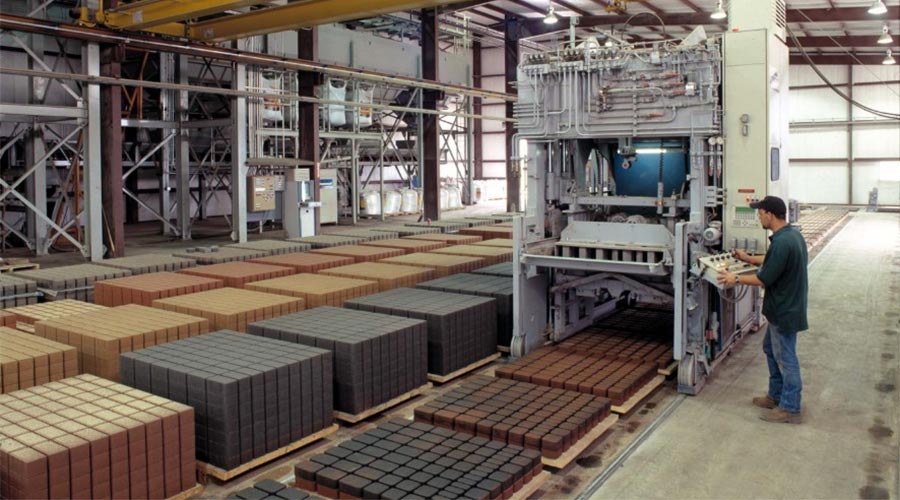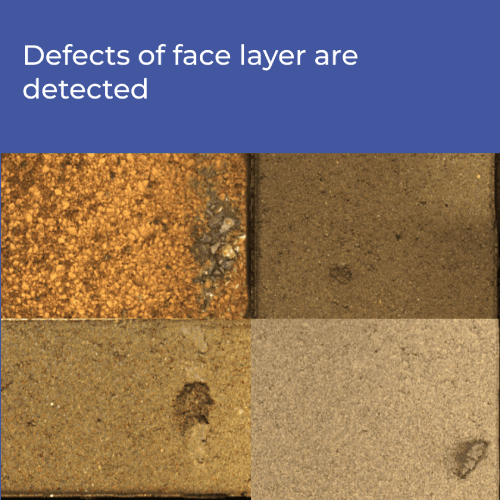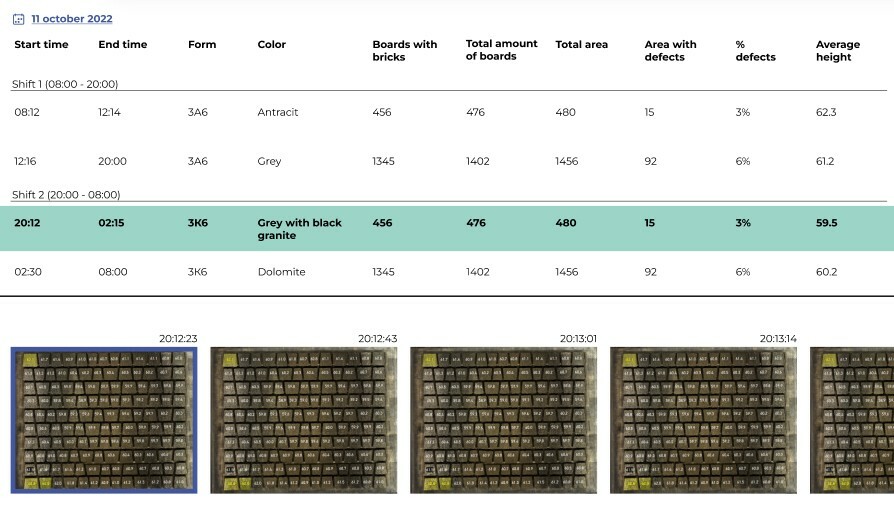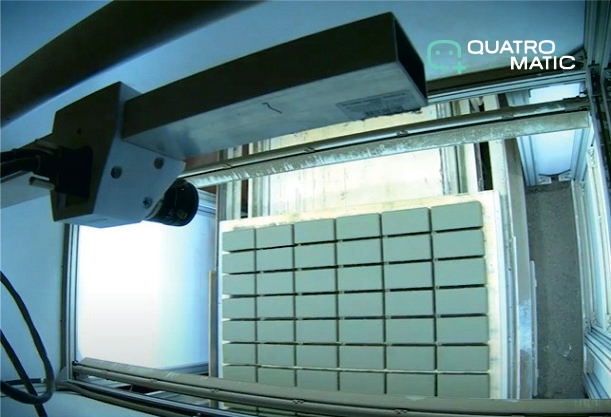One of the manufacturing processes of concrete block production which is still not automated - is a quality control of products.
So, the one way of automatization that production area is detection defects and collection of data automatically. By smart devices, based on machine vision.
Advantages of automation and of use of machine vision systems for concrete blocks production
The use of machine vision systems makes it possible to:
- automatically collect data from all major production areas, i.e., the entire production process can be digitized and all the data can be analyzed. Based on the data accumulated over a long period of time, it is possible to identify the most problematic batches in terms of defects and height deviations. If there are more defects on a certain form, it probably already needs repair or replacement;
- simplify the process of material accounting and writing off, based on the actual product and material flow;
- automatically track the average height of products by product type and to work on reducing the overall height in order to cut material costs. These are pretty significant cost savings. For example, if you mold 60 mm products with an average height of even 59 mm, instead of 61 mm, this is 3% of the total volume of materials.
- see the results of the work of operators and to conduct additional training in a timely manner;
- analyze the work pace, identify downtimes, and eliminate their causes, thus increasing overall productivity.
Technology of machine vision and artificial intelligence help to control production. But most often only on the dry side. Look how it's realized:
Inspection on the dry side of the conveyor

Smart system record which tiles the picker removed from the pallet, ensuring that all defective stones are replaced and none of them get to the client.
Knowing the number of all the removed stones, we can automatically calculate the volume of concrete mix losses for each batch separately.
In the case of control products only on the dry side - we don't know the reason for defect products and losses, we can't analyze the frequency of defects. That's why mostly important task is - inspection on the wet side of the conveyor.
Inspection on the wet side of the conveyor
On the wet side, the machine vision system
- measure each tile on a pallet in real time with the accuracy of 1 mm;
- recognize defects in the top face surface of the tile, such as cracks, chips, shells;
- control the conformity of the color of the party.
This information can be used by the concrete molding machine operator to quickly identify problems with molded products and take action to prevent manufacturing of defective products.

and performs two important functions:
- collecting data on the manufacturing process;
- preventing manufacturing of defective products and reducing direct losses.

One of the functions of a quality control system QuatroPBC is the collection of data for further analysis:
- product identification - detection of shape and color. This information is necessary for the correct batching of products;
- maintaining a photo archive of all produced pallets. A very useful feature to understand what awaits us on the rollout after a night shift or after a weekend.
- recording the production time of each pallet with the accuracy of a second - to track equipment micro-outages.
All pallet photos and measurement results are summarized in a production report by lot, product feature, operator or shift.
The archive stores large-scale images of each pallet, which makes it possible to see at any time who and what exactly molded earlier, and what problems they faced.
The interface can be accessed not only by the operator, but also by all the employees responsible for the production. It lets them see in real time what exactly is happening on the line at current or any other moment of time.
Technology of quality control by QuatroPBC
The pallet, moving along the conveyor, passes under the smart device. The received data is analyzed in real time and transmitted to the operator.

And only after that it will be correctly the following tasks - After the strength gain, the products are rolled out on the dry side, and there, with the help of RFID tags installed in the pallet, it is possible to identify each pallet and to understand what deviations were found in it on the wet side.
Machine vision systems in production are not only about detecting defects here and now, but rather about collecting big data, analysis of which can significantly increase production efficiency in our difficult time.
Do you have any question about QuatroPBC? Ask your question in the form below!





